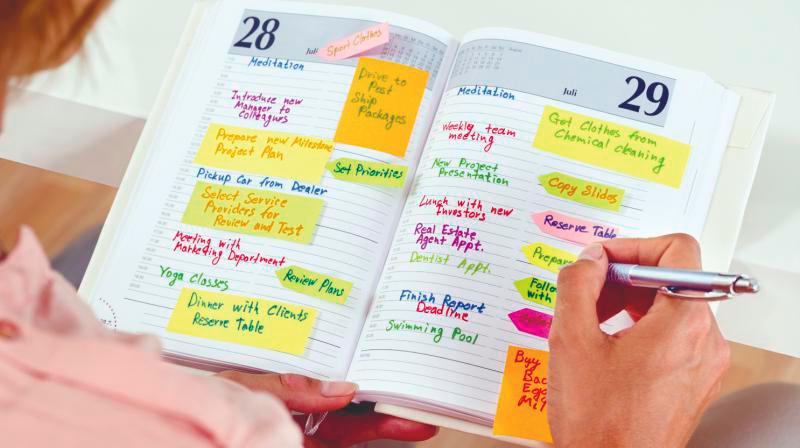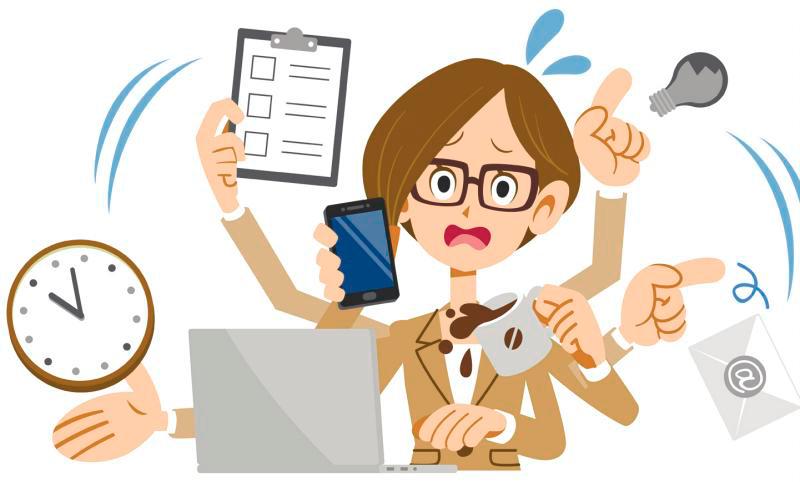THE effort to complete two or more things at the same time is known as multitasking, and it frequently culminates in task switching or leaving one unfinished activity to do another. Multitasking has become ingrained in our culture. Everyone has done it at some point in their life. It is an issue that frequently sparks controversy. Multitasking can help us complete numerous chores on our to-do list, but can doing so impair our capacity to complete those jobs well? We are all aware that multitasking may be done in both positive and negative ways. While multitasking might make work simpler at times, it can also lower overall productivity.

PROS
Creates a habit of adaptability
Adaptability to changing conditions is more vital than ever. Something might change in a moment, and individuals must be able to think quickly on their feet, assess the issue, and devise the best answer. Multitasking necessitates the simultaneous execution of various thinking chains, allowing for the development of adaptive habits in order to make rapid, precise judgments.
Increased efficiency
Multitasking allows you to do several tasks in less time. A professional can multitask, while a trainee learns and completes one duty. There are several ordinary jobs that need multitasking. For example, checking and replying to all emails may be done at the same time.
Saves time
One of the most obvious and significant advantages of multitasking is the ability to save time. Rather than performing one thing after another, you might combine jobs to get everything done fast. Drinking your coffee while watching your favourite show, for example, allows you to save at least 30 minutes of your day. Multitasking encourages people to devote more time to activities they like, such as family or hobbies.
Prevents procrastination
When a person is juggling many responsibilities, there is a slim possibility that they may postpone some activity. Some folks will be more driven since they will see what they are accomplishing. This allows all jobs to be completed on time and in accordance with expectations. It is harder to postpone and so waste time when someone is multitasking.

CONS
Eliminates certain personal skills
For some, multitasking through modern technology has become so common that they have lost their interpersonal skills. People have social demands that technology cannot meet. Sometimes you need to speak with someone in order to get anything done correctly, and emails are not a substitute for a phone conversation. Even when surrounded by people, excessive multitasking turns a person into an island. Isolation eventually leads to emotions of loneliness, melancholy, and despair, which can lead to mental health issues that must be treated.
Harder to accomplish something that’s important
The majority of multitasking includes the most basic components of a project. This is due to the mind’s intrinsic limitation of what we believe we can and cannot do during the day. We feel really amazing if we get a lot of little things done for a lot of projects because it feels like we did a lot. The only problem is that our minds have duped us into believing this. Despite all of the effort, almost nothing was accomplished.
Increased stress level
Trying to juggle too many tasks at once might raise your stress levels, especially at work. Workplace stress can result in burnout, employee absenteeism, and disability claims. Anxiety connected with multitasking at work can diminish productivity and harm a company’s earnings. It can also emerge as worry, a sense of too much external demand for not getting things done while being split, or dissatisfaction in ourselves for not understanding how to organise ourselves more efficiently.

Increased probability of error
This is a natural result of the multitasking’s lack of attention. Taking on several duties instead of just one increases the likelihood of inaccuracy. Obviously, if our attention span is limited. When you are doing many tasks at once, your mind is divided between them, therefore it’s normal for your blunders to proliferate. Multitaskers are lousy at removing extraneous information. That implies there will almost certainly be some mental cross-fire and overlap across jobs.
Multitasking appears to be a smart notion in many ways: by working on many tasks at once, multitaskers are potentially more productive. However, while multitaskers may appear to be better at their jobs, multitasking can be distracting. If you believe that multitasking is interfering with your life, you may make some modifications to improve your productivity and efficiency. The next time you find yourself multitasking, take a quick inventory of everything you’re attempting to complete. Then, decide which work requires your attention first.









